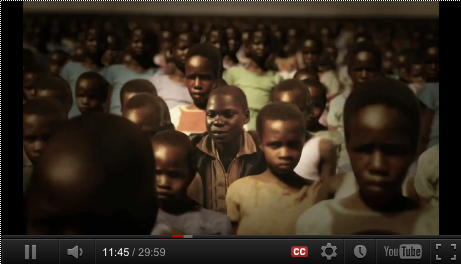Jason Russell and Invisible Children know that a powerful story can change the world. But by characterizing essentially all Ugandans as either war criminals or helpless victims, the massively viral "KONY 2012" manages to flatten its subject rather than deepen it. Which is to say: it fails the test of good storytelling. Or, more to the point, of storytelling for good.

Though likely well-intentioned, the story "KONY 2012" tells is that Africa needs saving, and only the United States can do it. It says that Ugandans are voiceless without us. That Ugandans are invisible without us. That's a dishonest story, as most "rescue" narratives -- whether dealing with violence against women in India or the rights of women in Afghanistan, or impoverished children, or you name it -- tend to be.
In "KONY 2012," we see the mutilated faces of children. What we don't see are the faces of politicians and activists like Betty Bigombe -- whose work was instrumental to peace talks between Kony's Lord's Resistance Army and the Ugandan government -- and countless others in northern Uganda who ended a terrible war, and raised the international profile of Kony's crimes. Rather than build on their years of struggle and hope -- Invisible Children erases it. Instead, the video creates a new version of Uganda's history: one in which the war continues, with an entire population helpless to stop it -- that is, unless the United States gets involved. "KONY 2012" makes for a powerful meme, but at a terrible cost. We do need to tell stories that make the simple, urgent emotional connection required for broad action. How do we do that without relying on tired racial stereotypes or weary paternalism? How do we make the crucial distinction between swooping in as saviors and standing in solidarity?
We start by telling the truth. The job of cultural entrepreneurs like Invisible Children -- whose primary aim is to change hearts and minds -- is to reveal the inherent humanity in the issues that connect and affect us all. The stories we tell should help us to see one another as fully human, as people with hopes and fears, limitations and capacities. They should remind us that injustice anywhere is injustice everywhere, and that we all have a stake in defending our shared human rights and creating the kind of world we want to live in. This is the only way we can do more than respond to violations and rush to remedial action. Telling stories about our shared humanity -- stories that demand our collective right to dignity and equality, justice and safety -- is the only way to build a culture, and a world, in which men like Kony are stopped before they "go viral," or never rise up at all.